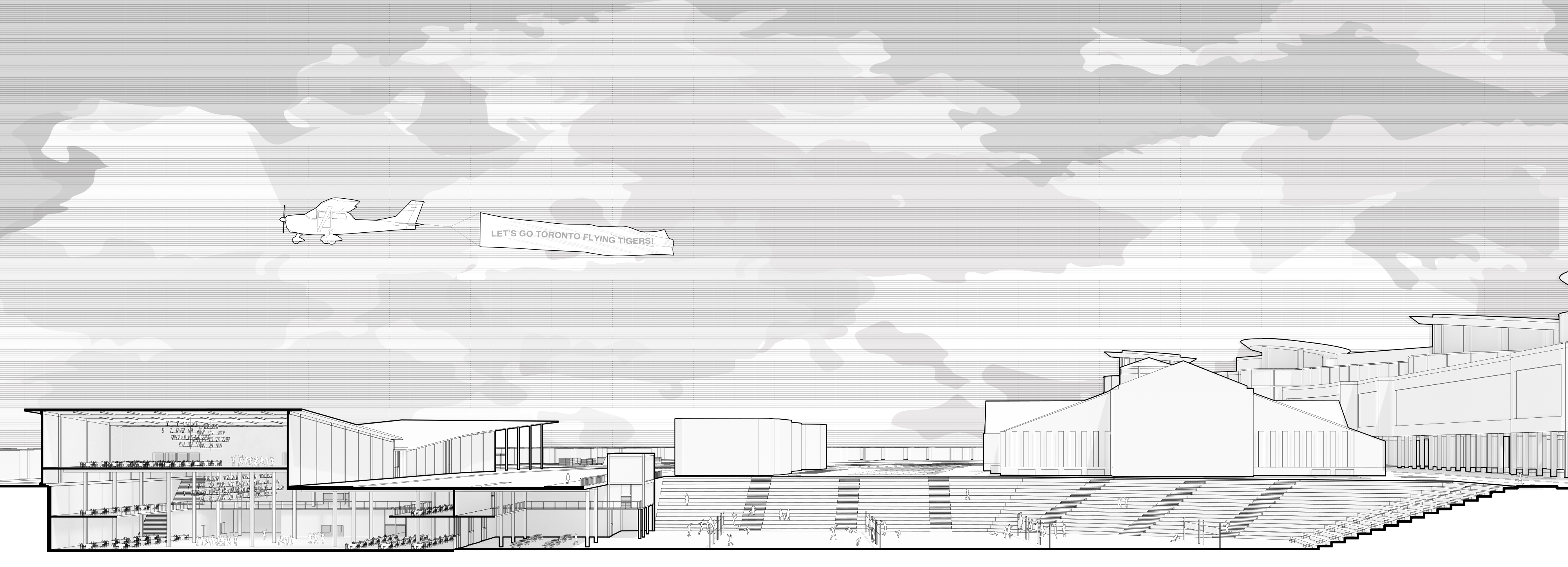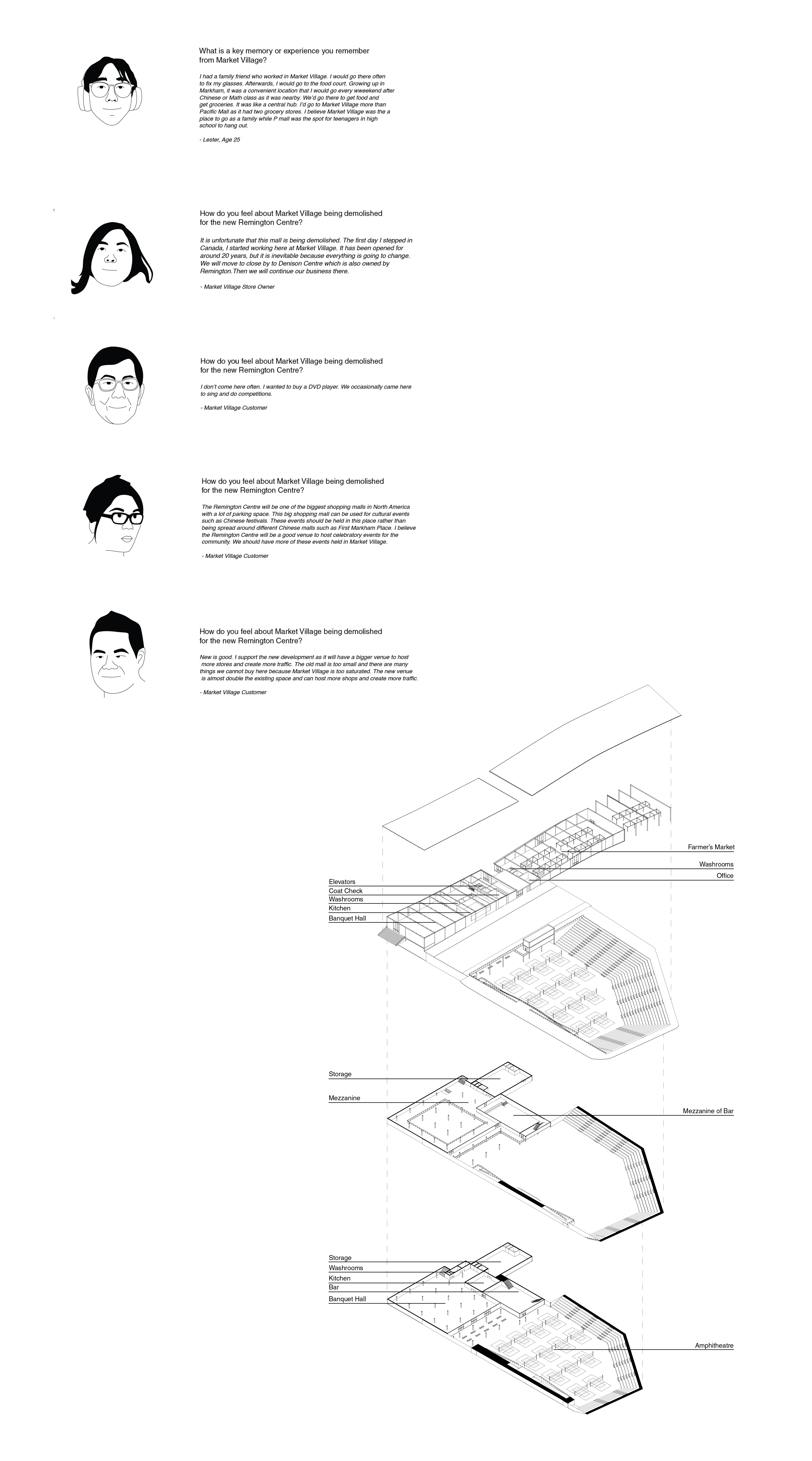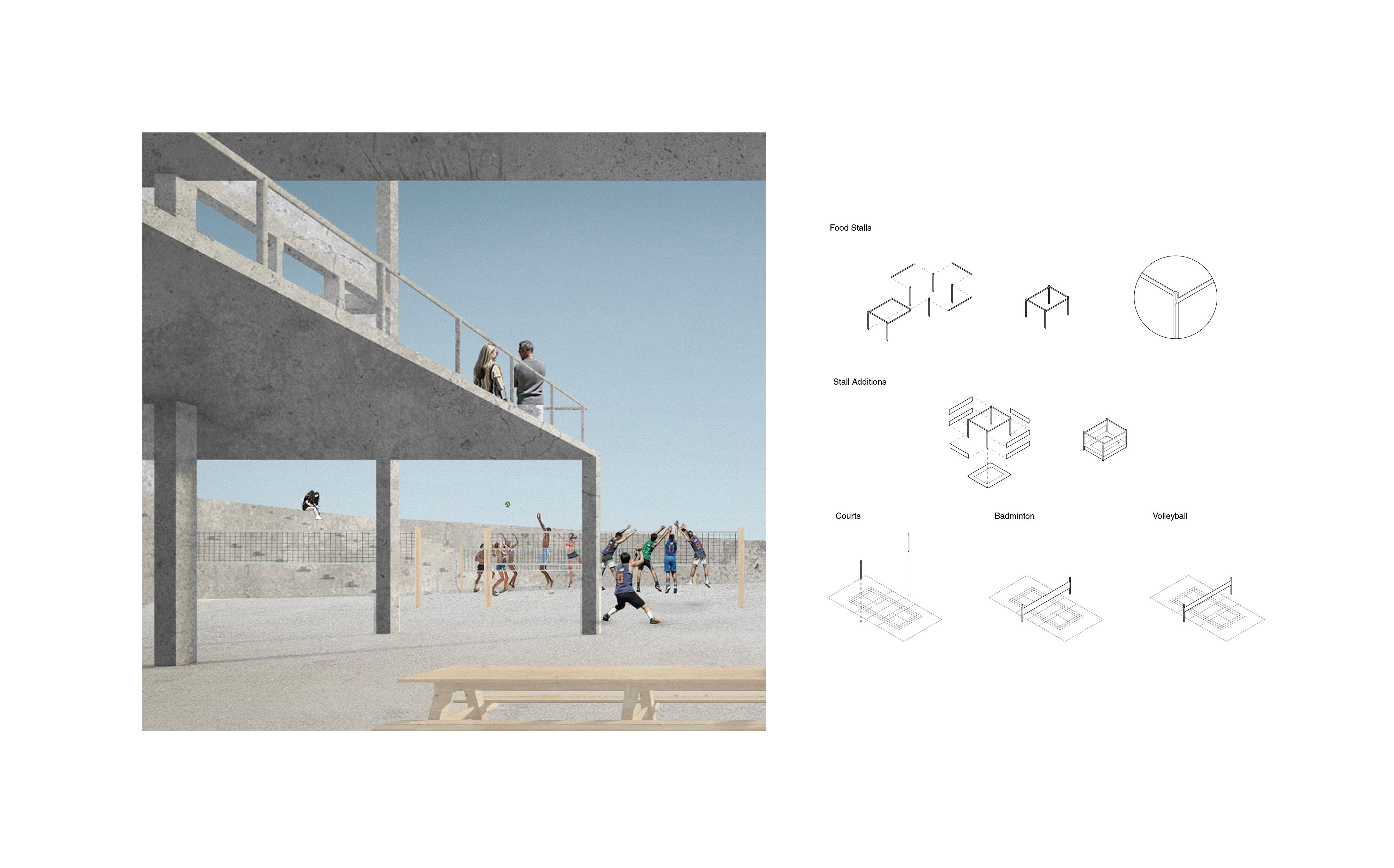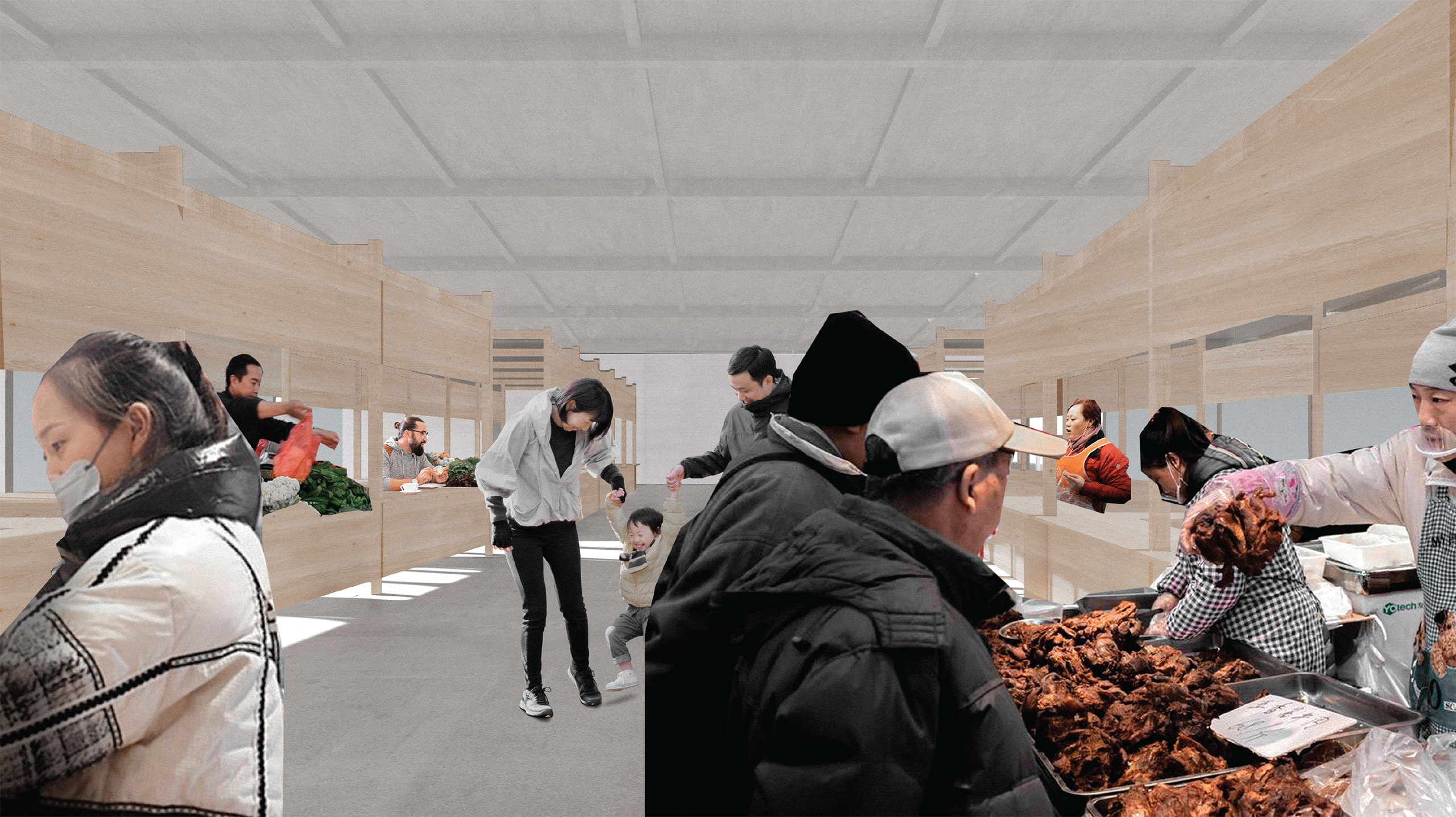Jean Phillipe Vassal says: “Generosity is not just ‘more space, it is also accepting what people are going to do with the architecture; you have to accept appropriation.” Generosity in our built environment is created when spaces are appropriable by the communities surrounding them. My thesis examines a site that in the past was an important place expressing a sense of solidarity and belongingness for Chinese-Canadians, asking: How can that sense of belonging, once destroyed, be reconstructed today? Chinese malls became focal points of contemporary diasporic communities in ethnic enclaves throughout North America. In Markham, north of Toronto, Pacific Mall and Market Village Mall served as cultural hubs for several generations of Chinese-Canadians. Today, Market Village has been demolished, scheduled to be replaced with a large new development (Remington Centre) that will address a more diffuse constituency of consumers. To create both a generous and appropriable space, this thesis examines the urban surface – a parking lot at the site of the former Market Village – equipping it with ‘affordances’ that were present in different forms in Market Village, as well as new configurations supporting use by community members. These include banquet facilities, a traditional Chinese market, and new spaces for competitive volleyball, community performances, and gathering.





